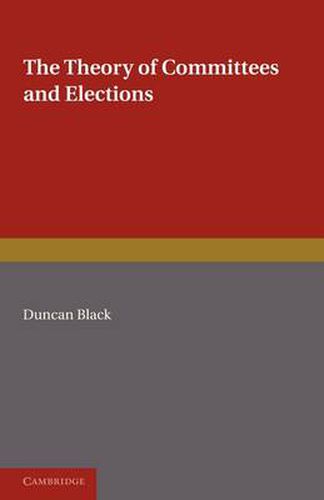Readings Newsletter
Become a Readings Member to make your shopping experience even easier.
Sign in or sign up for free!
You’re not far away from qualifying for FREE standard shipping within Australia
You’ve qualified for FREE standard shipping within Australia
The cart is loading…






In this book, first published in 1958, the social choice theorist and economist Duncan Black aims to formulate a pure science of politics. Focusing on the mathematics of committees and, accordingly, of elections, Black’s writing engages with the theories of Condorcet, Borda and Laplace in order to describe the ways in which different systems of voting will yield different results. This can, as Black discusses in detail, influence whether the chosen candidate or motion is relatively agreeable to all, or only suited to the majority group of voters. Black also presents a history of the political science of elections, placing his own work within the context of earlier research and thought on this subject. Professor Black ensures that only a basic knowledge of arithmetic is needed to understand his arguments, although his methods of reasoning will be more familiar to those readers who have previously studied mathematics and economics.
$9.00 standard shipping within Australia
FREE standard shipping within Australia for orders over $100.00
Express & International shipping calculated at checkout
In this book, first published in 1958, the social choice theorist and economist Duncan Black aims to formulate a pure science of politics. Focusing on the mathematics of committees and, accordingly, of elections, Black’s writing engages with the theories of Condorcet, Borda and Laplace in order to describe the ways in which different systems of voting will yield different results. This can, as Black discusses in detail, influence whether the chosen candidate or motion is relatively agreeable to all, or only suited to the majority group of voters. Black also presents a history of the political science of elections, placing his own work within the context of earlier research and thought on this subject. Professor Black ensures that only a basic knowledge of arithmetic is needed to understand his arguments, although his methods of reasoning will be more familiar to those readers who have previously studied mathematics and economics.